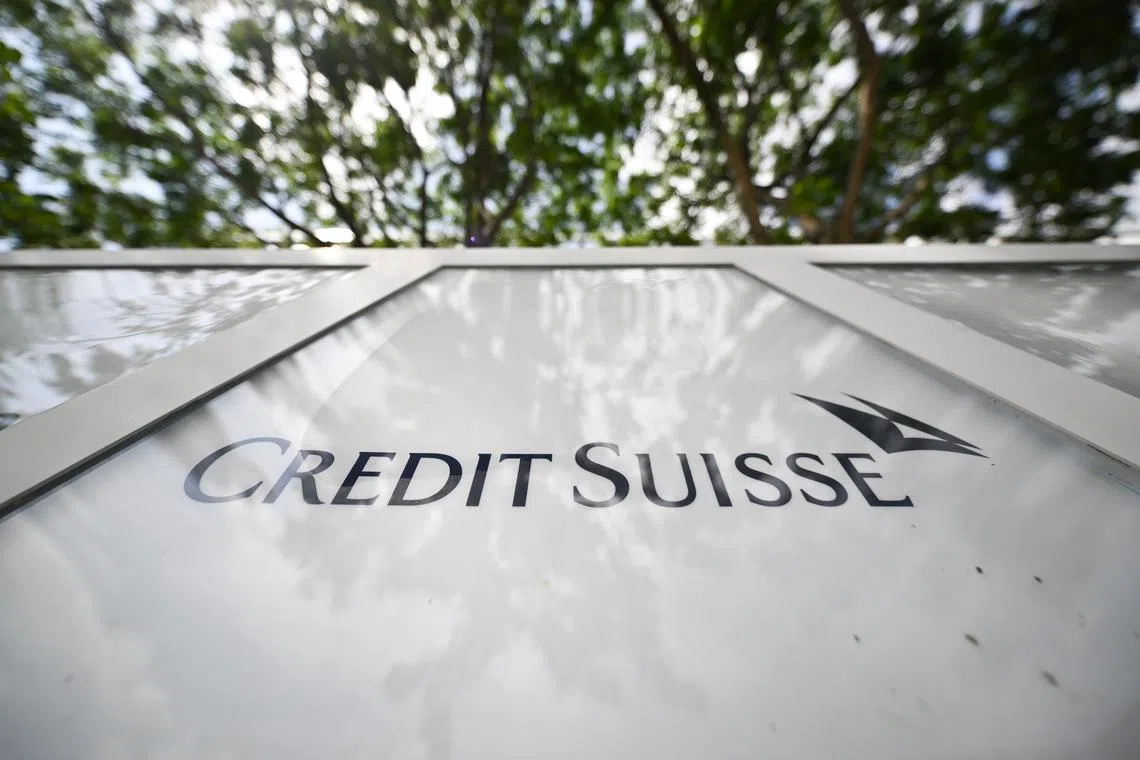Bank sub-bonds worth buying despite recent write-off of Credit Suisse’s bonds, says Citi
Sign up now: Get ST's newsletters delivered to your inbox

Citi pointed out that despite all the volatility in the wake of the Credit Suisse crisis, these instruments have generally still outperformed intermediate Treasuries.
ST PHOTO: LIM YAOHUI
Follow topic:
SINGAPORE – Despite the recent jitters and volatility caused by the write-off of some US$17 billion (S$22.6 billion)
Citibank chief investment officer and global head of investments David Bailin noted that a diversified basket of investment grade preferred equity securities (known as preferreds) now has the highest yield compared with sub-investment grade bonds in over a decade.
“Some of these shares and subordinated bonds yield near 8 per cent,” Citi’s April 2 report noted.
The report, whose co-authors include Citi chief investment strategist and chief economist Steven Wieting and global fixed income strategy head Bruce Harris, played down the risk of a bank failure contagion, pointing out that regulators in the United States and elsewhere acted quickly to reassure investors that the banking sector is sound and that they continue to be proactive.
Other regulators, including the US Federal Deposit Insurance Corporation (FDIC), have also provided tremendous support to sentiment in the banking system, guaranteeing uninsured deposits for Silicon Valley Bank (SVB) and Signature Bank.
US Treasury Secretary Janet Yellen has also indicated repeatedly that the government could provide emergency support again in the future if needed, the report added.
“When market volatility subsides, the relative value of preferreds may allow for appreciation potential. Other potential upside catalysts include a decline in inflation leading to Fed rate cuts over the next 12 months, stabilisation in the banking sector as bank management focuses on improving liquidity and additional government measures,” it said.
The decision of Swiss regulators to bail out common equity holders of Credit Suisse and write down to zero its AT-1 bonds caused a huge tumble in prices of subordinated debt and preferred securities.
This came in the wake of a bailout of the distressed bank and its ultimate takeover by rival UBS in March
Citi pointed out that despite all the volatility in these investment-grade rated preferreds in the wake of the Credit Suisse crisis, these instruments have generally still outperformed intermediate Treasuries since last summer on a total-return basis.
“The unexpected events of the past month have focused investors on the risks to bank earnings and the financial sector’s equity and preferred securities’ values. We remain neutral on expected bank common equity performance and expect the sector to remain volatile, but we do not foresee another financial crisis and view this tail risk as small,” the report added.
Banks’ preferred securities are generally issued by investment-grade-rated issuers, but are rated lower because they are structurally subordinate in the “payment waterfall” to actual debt issuance. In short, creditors of more senior debt are paid first, before these debt holders get paid.
Also, these preferreds do not have maturity dates, meaning they are perpetual, unless called or redeemed by the issuer. Therefore, there is an extension risk when a preferred security does not get called on its initial call date.
But Citi noted that these preferreds have increased their relative value across bank capital structures.
“For investors interested in taking a closer look at institutional bank preferreds, there are options,” Citi said.
“Numerous funds are dedicated to this asset class, and there are other types of funds that offer preferreds as part of a larger fixed income allocation.
“Preferreds may also be purchased directly, depending on investor suitability. We continue to suggest investors consider a small allocation to preferreds to enhance their overall core fixed income yields.”


